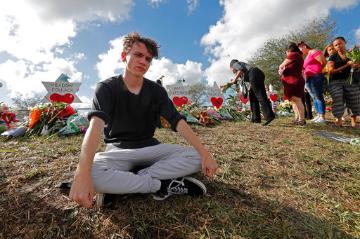
Policymakers should listen to students
Yael Kidron is the director of Character Education at the Ethics Center. Madeline Godwin is an intern in the Character Education Program. Views are their own.
In the wake of the recent shooting at Marjorie Stoneman Douglas High School in Parkland, Florida, students have reacted, calling on policymakers and administrators to take more measures and stop gun violence. Student leaders have made their voices heard. To advocate for stricter gun control laws and more mental health services, students are currently organizing various marches across the country.
There are multiple reasons for communities and policymakers to listen to these voices. Including students in all phases of decision making in the aftermath of school shooting can bring fresh ideas for effective public action and policy to make schools safer and more supportive of students in distress, both for trauma prevention and post-trauma intervention. When young people contribute to public deliberations they feel connected to their community and internalize the values of a democratic, inclusive society. They understand that they can become involved in supporting causes for the public good. An active display of solidarity also is a way for students to cope with grief, anxiety, and the fear of future violence in their schools.
Further, an event like this is an opportunity for weaving everyday dilemmas and difficult questions into the character education curriculum. Character education often aims to promote social responsibility and active citizenship. Many character education lessons promote awareness of others’ needs and the motivation to help others. However, students (and counselors and teachers) often struggle with ethical questions, both before and after the shooting (e.g., “Should I breach confidentiality and report on someone who may harm himself or others?” and “Should I feel guilty for having missed the student’s pain?”).
There are no straightforward answers to these questions. However, listening to the voice of students can inform the development of tools that educators need to facilitate such conversations constructively. But discussions about social responsibility should not be limited to the classroom. Effective character education practices would encourage students to continue their process of understanding how a community can come together to provide the kind of climate where individuals can always seek help and receive it.
The Ethics Center has developed a new Character-Based Literacy (CBL) lesson plan for discussing school violence based on Violent Ends — a novel by 17 young adult literature authors.
The lesson plan can be used for classroom instruction, counseling, and independent study. The reading, writing, and reflection activities can be completed in 40-minute sessions over 14 days.
Additional Resources
American Psychological Association Resources for Coping with Mass Shootings, Understanding Gun Violence
The Impact of Gun Violence: A Conversation with Students In this blog post, former U.S. Secretary of Education Arne Duncan shares an hour-long conversation with students about gun violence.